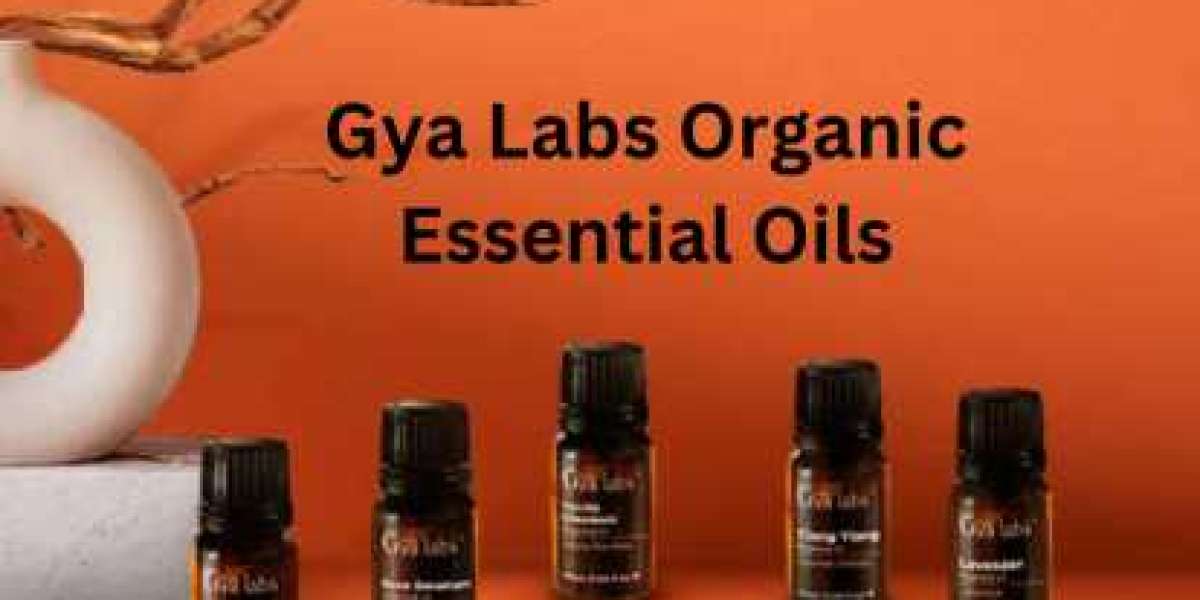In the world of wellness, essential oils have emerged as powerful tools for enhancing health and promoting relaxation. As the demand for these aromatic wonders grows, so does the need for consumers to make informed choices. One crucial decision lies in choosing between organic and regular essential oils. Let's delve into the distinctions, benefits, and considerations associated with each.
Organic Essential Oils,
What Makes an Essential Oil Organic?
Organic essential oils are derived from plants grown without synthetic pesticides, herbicides, or fertilizers. The cultivation process emphasizes sustainable farming practices, contributing to the purity of the end product.
Benefits of Organic Essential Oils
Organic varieties boast enhanced purity and potency. The absence of synthetic chemicals ensures a more authentic aroma and therapeutic benefits. Certifications, such as USDA Organic, validate the adherence to stringent quality standards.
Regular Essential Oils
Composition and Production Methods
Regular essential oils, on the other hand, may be produced using conventional farming practices. This involves the use of synthetic chemicals in cultivation, potentially impacting the overall quality of the oil.
Common Uses
Regular essential oils are widely used in aromatherapy, cosmetics, and even culinary applications. While cost-effective, they may lack the purity and environmental sustainability associated with organic options.
Quality Comparison
Purity and Potency
The quality of an essential oil hinges on its purity and potency. Organic oils often undergo more rigorous testing, ensuring a higher concentration of beneficial compounds. This can translate to a more robust and effective product.
Environmental Impact
Choosing organic oils aligns with environmentally conscious consumerism. Organic farming methods prioritize soil health and biodiversity, contributing to sustainable ecosystems. Regular oils, produced with synthetic chemicals, may pose environmental risks.
Health and Wellness Applications
Aromatherapy Benefits
Both organic and regular essential oils offer aromatherapy benefits, impacting mood and well-being. However, the purity of organic oils may enhance their therapeutic effects, making them a preferred choice for holistic health practices.
Potential Health Risks
Regular essential oils may carry traces of pesticides or other contaminants. While concentrations are typically low, users with sensitivities or those seeking the purest experience may opt for organic alternatives.
Sustainability and Environmental Impact
Organic Farming Practices
Organic farming prioritizes sustainable practices, including crop rotation and natural pest control. This not only ensures the health of the plants but also contributes to long-term soil fertility.
Chemical Use in Conventional Farming
Conventional farming methods involve the use of synthetic chemicals, which may have adverse effects on soil, water, and surrounding ecosystems. The environmental impact of regular essential oil production is a crucial consideration.
Price and Affordability
Cost Factors
One significant factor influencing the choice between organic and regular oils is cost. Organic oils are often priced higher due to the labor-intensive and sustainable farming practices. Regular oils, being mass-produced, tend to be more budget-friendly.
Long-term Considerations
While regular oils may seem cost-effective initially, the long-term health and environmental benefits of choosing organic oils can outweigh the upfront savings. It's a matter of balancing immediate affordability with future sustainability.
Consumer Trends
Shifting Preferences
Consumers are increasingly leaning towards sustainable and ethical choices. The rise of conscious consumerism has led to a shift in preferences, with more individuals opting for products that align with their values, including organic essential oils.
Awareness of Sustainable Choices
As awareness of environmental issues grows, consumers are becoming more discerning. They seek products that minimize their ecological footprint, driving the demand for best organic essential oils as a sustainable alternative.



